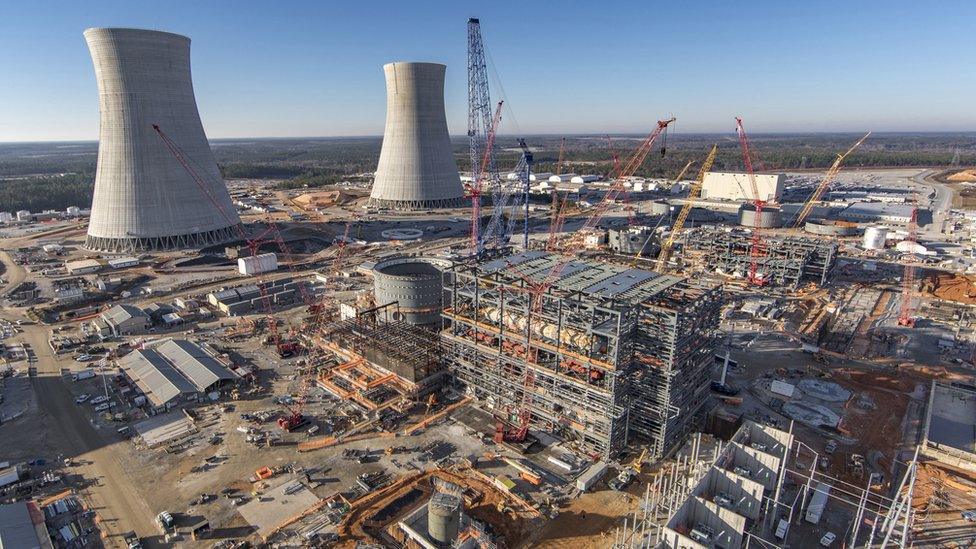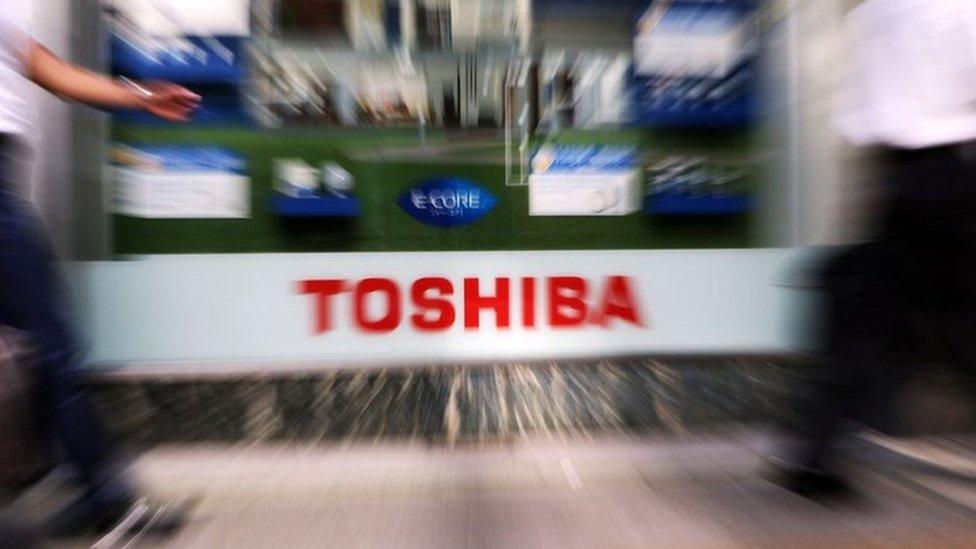Toshiba looking to sell Westinghouse nuclear business
- Published
What's gone wrong at Toshiba?
Toshiba president Satoshi Tsunakawa has said the company may sell its majority stake in US nuclear unit Westinghouse.
The struggling electronics firm bought Westinghouse in 2006, but it has suffered huge cost over-runs.
Toshiba has also been given permission to delay reporting its earnings for a second time - this time until 11 April.
Mr Tsunakawa said: "We are working on nurturing our growth businesses to return to stable growth by fiscal years 2018 and 2019."
Shares in the company rallied late on Tuesday, closing up 0.5% in Tokyo after earlier falling by nearly 9%.
In February, Toshiba's chairman stepped down and the firm delayed publishing its results over disagreements with its auditors.
Last month, the firm announced a 712.5bn yen ($6.3bn; £5bn) writedown because some of its US nuclear assets were worth far less than estimated.

Westinghouse's Vogtle nuclear power station under construction in Georgia
The situation has led some analysts to warn that the company's future may be at risk.
Nuclear losses
While often still associated with its technology products, Toshiba has become a diverse conglomerate. Its nuclear services business brings in about a third of its revenue.
However, that side of the business has not made a profit since 2013 and nuclear services globally are struggling since the Fukushima disaster in 2011.
Toshiba had initially alerted investors in December 2016 that it faced a heavy one-off loss linked to a deal done by Westinghouse.
Assets that it took on are likely to be worth less than initially thought and there is also a dispute about payments that are due.
Requesting permission for the new delay to its results, Toshiba said some US senior managers had exerted "inappropriate pressure" in the way the acquisition of a nuclear plant construction company had been dealt with in its accounts.
Selling assets
Since December's announcement, Toshiba shares have lost more than half of their value.
To offset the upcoming writedown, Toshiba is also rushing to sell most or even all its prized memory chip business, which it thinks is worth at least $13bn.
The company is the second largest chipmaker in the world, behind Samsung.
Toshiba is also still struggling to recover from a scandal in 2015, when it emerged that profits had been overstated for seven years. The news prompted the chief executive to resign.
- Published14 February 2017
- Published14 February 2017
